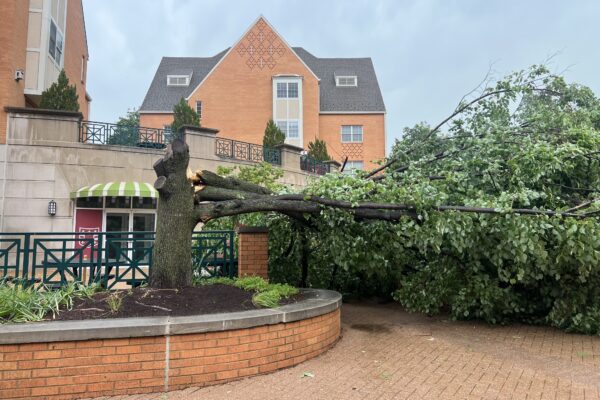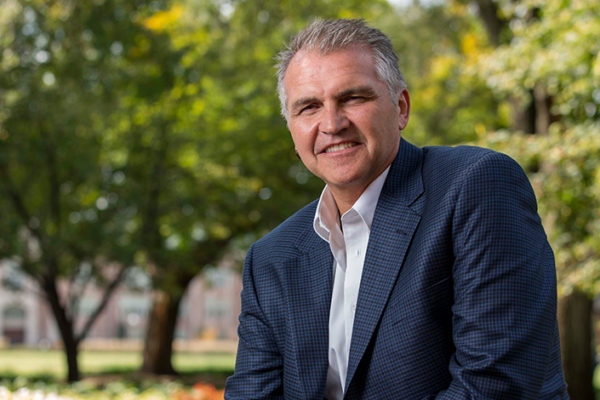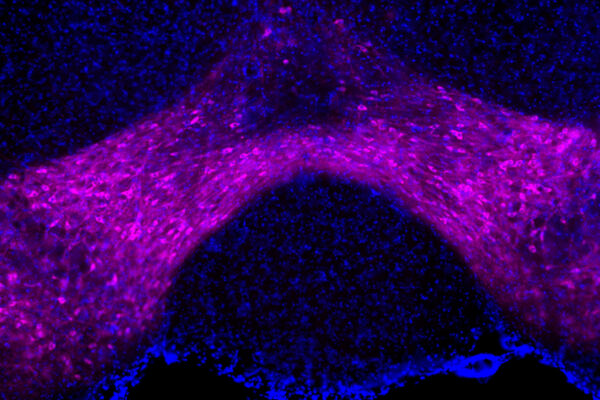A tornado ripped through St. Louis May 16, killing five people, damaging more than 5,000 buildings and leaving tens of thousands of people without power.

Salma Abdalla, an assistant professor in the School of Public Health at Washington University in St. Louis, has previously studied the impact of Hurricane Harvey on the mental health of the residents of Houston.
Here, she talks about the importance of government-provided disaster assistance and public health services for supporting those impacted by storms, as well as what individuals can do to protect their mental well-being in the weeks and months to come.
In the aftermath of a storm, the immediate concern is cleaning up the physical damage. But what damage can a storm like a tornado have on mental health?
Beyond the immediate physical cleanup, a storm like the one we experienced in St. Louis May 16 can inflict significant damage on mental health. While most people cope well following disasters, a substantial proportion may experience psychological impairment, and a smaller percentage may develop mental disorders. Specifically, post-traumatic stress disorder (PTSD) is a commonly occurring post-disaster mental health condition, with prevalence estimates ranging from 30-40% among direct victims, 10-20% among rescue workers, and 5-10% in the general population. Depression is another frequent outcome, and other psychological symptoms can also manifest. Following Hurricane Harvey, our team found that about 12.6% of affected residents had PTSD and 5.8% had depression more than three years after the disaster. The mental health effects come from both traumatic experiences during the disaster and ongoing stressors afterward.
For those directly impacted by the storm, how can people tend to their mental health during such a stressful time?
As someone who focuses on social and economic policies and mental health, I think a lot can be done through institutions and systems. Interventions in the acute phase directly following the disaster should be designed to promote safety and stability and help people cope. Psychological First Aid (PFA) has become a preferred intervention, aiming to secure basic necessities like food, medical supplies and shelter; reduce acute stress by addressing post-disaster stressors; and help those directly affected obtain additional resources to regain a sense of control. Local governments should ensure rapid restoration of essential services and create accessible centralized resource centers for affected residents. Communities should establish reliable information channels and coordinate temporary housing solutions. Health-care systems need to integrate mental health services into disaster response.
At the individual level, people should prioritize immediate safety needs while maintaining social connections when possible. Research shows that social support serves as a crucial buffer against the negative psychological consequences of disasters. Individuals might also benefit from limiting exposure to repetitive disaster media coverage, as studies have linked excessive disaster-related media consumption with increased rates of psychological distress.
Regardless of whether at the individual or societal level, it’s crucial to invest in an approach that promotes a sense of calm, alleviates stress and helps those directly affected return to pre-disaster routines and functioning as much as possible.
Are there tips or habits that any of us can learn to be more mentally resilient in the face of disaster?
While not my area of expertise, as I mentioned above, research consistently shows that establishing and maintaining strong social networks before and during disasters occur is perhaps the most important factor, as social isolation during recovery significantly worsens outcomes. Additionally, getting involved in community recovery efforts can provide a sense of agency and purpose that research shows is protective against developing mental health problems following disasters. Also, people should take advantage of mental health services as soon as they feel like they may need them and not wait until problems are severe.
Long term, the government should invest in and implement evidence-based psychological first aid training for first responders and community leaders before disasters strike and implement policies to reduce post-disaster social and financial stress.


